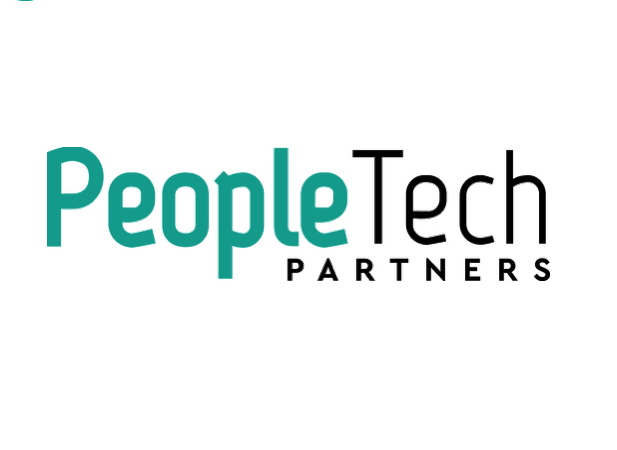
– by David Hanrahan: Author, Advisor for PeopleTech Partners, & former VP of People Operations at Zendesk
Picture this: you’re a leader in a company that is growing, and you’re struggling. Failing while scaling. What is it about being in growth mode, with the freedom and excitement that it entails, that nonetheless makes a leader crash and burn? I’ve seen this in my past few gigs (Twitter, Change, Zendesk). Really intelligent, accomplished people who are eager and seemingly can do anything, nonetheless lose their mojo and silently exit as a footnote. Personally, I feel on the cusp of it myself in every gig. For some context, while I was at these places, the headcount went like this:
- Twitter: 600 to 3,000+ in three years
- Change: 150 to 300+ in one year
- Zendesk: 700 to 2,100+ in three years
I contrast those experiences with time spent at large but relatively stable companies (Shell, Universal, Electronic Arts). There was some element of growth at those places — and a LOT of change happening across the business — but it’s very different than doubling the size of your company in a year or two. When you’re adding on layers, and defining your path from scratch — and re-defining what good looks like each year — it’s hard for a leader to know how they should adapt. To predict the future. To prioritize time. To know what to focus on next.
I’ve been thinking a lot about the failures and successes I’ve had over the years as an HR leader. It’s led me to see three broad areas of focus that a good HR leader should effectively balance. If you balance these effectively, you are an essential partner to the business:
Strategy: This is the articulation of what you know about the outside and inside and what we should do over a long distance. For HR leaders, it’s about creating a people strategy aligned to a business strategy. Strategy is the cohesive paradigm, based on some element of facts and data, on how we will win. Done really well, you craft a story for your organization that inspires them and creates clarity and comfort of a plan that will carry us over the long-term. Not everyone can do this! I think to really nail strategy, you have to be intellectually curious about the inside (eg. what are our strengths, what are we uniquely positioned to do or should do based on our makeup) and outside (what do customers want and how are things changing around us and how does that inform our approach). I think you also have to maintain a long view vs. the inherently short-term view of the next circle, which takes us to…
Operations: every leader will have some aspect of their function that will be about operations. Or, in other words, the execution of your strategy. Things like speed, efficiency, and rigor become important here. Your near-term goals wind up being the backbone of your strategy. If you excel at articulating a strategy, you won’t get far unless you can build / align / optimize your operations so that they ensure your strategy is successful. For many employees, it’s the operations of your function that is most important. Is it easy to get information? Are processes smooth and simple or cumbersome and error-prone? Do the people in your organization know what they are accountable for in their day-to-day? Operations cast the strategy in a near-term light that makes sense of it all. Operations are inherent in HR functions, but many super intelligent HR leaders shy away from it because they view it as less important than strategy. And yet some HR leaders make operations their central focus (perhaps at the expense of the others).
Relationships: arguably the most important aspect, as a leader scales, is their mastery of relationships. A relationship can be thought of as a three-legged stool and the legs are: trust, respect, and communication. You must have all three to have a relationship with any particular party. What is tricky though is that as the company grows, your relationships will change. You’ll find you can’t spend the same time as before on xyz relationships. Or a new relationship emerges that requires a lot of time and energy, pulling you away from an early one you forged. For many people in your org, as you scale, the closeness of their relationship with you fades and thus mutual empathy may weaken. Empathy is key for a customer-oriented organization and leadership must foster it. At the core of those three legs are your behaviors and how they manifest across the org — be it in 1:1s or all-hands or earnings calls. Relationships are inherently linked to your behaviours and what you role model, as a leader, translates into a tangible culture that you foster. Interestingly, EQ goes down as you ascend in an organization — and it’s a critical thing to foster good relationships. Social skills are growing in importance for the future workplace and, finally, there is evidence that successful leaders effectively leverage and maintain networks of the people that will be most key to their own success in the role.
I think these three things are more important than the things you already know coming into a job. Mastering the three things above (not just one or two) make you essential. I guess one way to look at it is a leader who perhaps does two well, but not a third. Example:
- Mastery of Strategy & Relationships, but not Operations: this leader knows what their function must do and can speak credibly to it. They also are respected by their peers and direct reports. But the knock on him/her is they can’t execute.
- Mastery of Operations & Relationships, but not Strategy: this leader is running an efficient organization that delivers on time, and is respected by their peers and directs. But increasingly, at scale, they can’t articulate a longer-term plan for how to win.
- Mastery of Strategy & Operations, but not Relationships: this leader has articulated a compelling long-term plan and is efficiently executing on it, building win after win, doing what they said they’d do. But they are doing it without key peers or directs bought in, and thus losing trust and respect along the way.
The three things above, in my view, are critical for a successful CHRO to effectively balance and I’ve found that balancing them requires an ever-shifting prioritization of them depending on the circumstances of the company and stage of growth you’re in at the time being. In truth, the three things above should apply to all leaders — but I’ve certainly found them particularly relevant to HR leaders.

Originally published at medium.com



